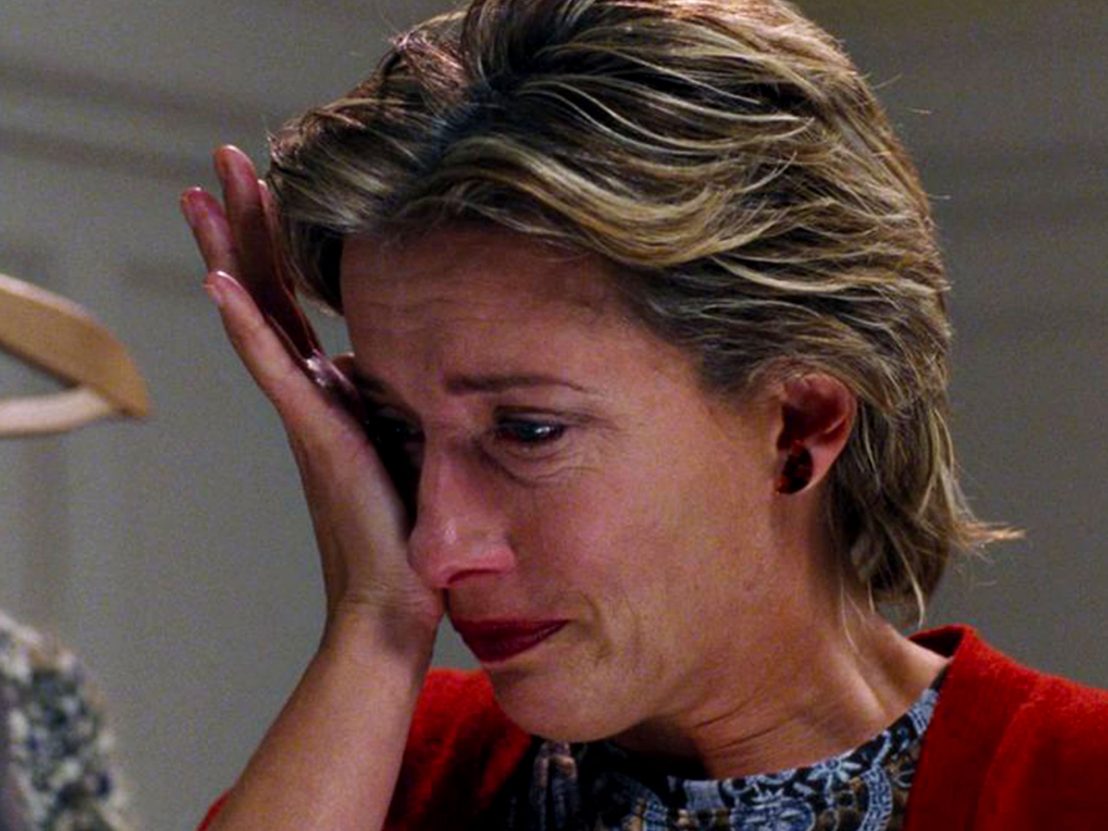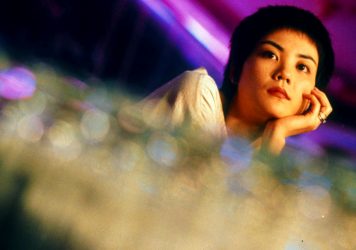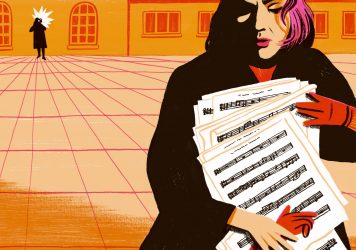
At the end of Joni Mitchell’s second album, ‘Clouds’, sits the melancholic masterpiece ‘Both Sides Now’. The musical embodiment of smiling through tears, the song’s yearning melody was destined for cinematic soundtracks. Its wistful lyricism evokes themes that are at once malleable and universal, making it fit comfortably into any genre, from indie horror to teen drama. Here’s a look back at how this timeless needle-drop has been deployed on screen.
Most recently, Mitchell’s enduring ballad plays a pivotal role in Sian Heder’s coming-of-age drama CODA. From an acoustic guitar duet to a piano-accompanied solo ballad, each time Ruby (Emilia Jones) performs ‘Both Sides Now’ her vocal inflexion grows bolder as she finds new meaning in the way Mitchell captures the sentimentality of growing up.
Richard Curtis’ Love, Actually can lay claim to giving ‘Both Sides Now’ its most famous cinematic cameo. After receiving a Joni Mitchell CD from her husband (Alan Rickman), confirming his affair, Karen (Emma Thompson) retreats to her bedroom as the orchestral swell of ‘Both Sides Now’ soundtracks her falling tears. The song’s rousing embodiment of loss, heartbreak and reflection come crashing into the frame as Thompson delivers a devastating acting masterclass.
‘Both Sides Now’ originally had a bigger part in Danny Boyle’s Steve Jobs biopic, but the song still serves as a symbolic plot point for the film’s strained father-daughter relationship. Jobs’ nine-year-old daughter listens to a loop of both the original and re-recorded versions of ‘Both Sides Now’, musing that the first is “girlish” while the second is “regretful”. That latter adjective, uttered as she stares down her absent father, exemplifies their tangled relationship and lost time.
By far the most unexpected use of ‘Both Sides Now’ comes in Ari Aster’s supernatural psychological horror Hereditary. As the film cuts to black following its bone-chilling conclusion, Judy Collins’ chirpy cover version begins to play over the credits. If the harpsichord chimes initially seem to jar with the film’s bleak tone, Mitchell’s mournful, world-weary lyrics couldn’t be more apt.
A few months after Hereditary’s credits rolled, Collins’ cover of ‘Both Sides Now’ appeared in the teaser trailer for the fourth instalment in Disney-Pixar’s Toy Story series. All the familiar characters are holding hands with blue sky and perfectly fluffy clouds behind them. “I really don’t know clouds at all”; the last line before Forky breaks the chain and the toys go flying. The gentle melody is lullaby-like and a pang of nostalgia for older viewers.
The sun is setting over the ocean’s horizon as George (Kevin Kline), a cancer-stricken architect rebuilding his home, and his ex-wife (Kristin Scott Thomas) slow-dance to Joni Mitchell, their silhouettes swaying in the house’s skeleton. Although there’s a hint of sorrow here, it’s an uplifting sequence. As Mitchell promises “something’s lost and something’s gained in living every day,” George and Robin hold each other close.
It’s hard to dislike Tom Hanks but he’s walking on thin ice when mocking the lyrics of ‘Both Sides Now’, proclaiming “I could never be with someone who likes Joni Mitchell,” the favourite singer of Meg Ryan’s character. While Hanks’ protagonist fails to understand Mitchell’s penned dualities of love and life – the “up and down,” “give and take,” “win and lose” – the verses perfectly encapsulate the push-pull of this rom-com relationship.
Published 10 Aug 2021

A countdown of the greatest chart-toppers, floor-fillers and musical curios ever composed for film.

Cocteau Twins’ Simon Raymonde and The Cranberries’ Noel Hogan reflect on the musical legacy of Wong Kar-wai’s 1994 film.

By Thomas Hobbs
The singer-songwriter and rising film composer reveals how she was seduced by Krzysztof Kieślowski’s doppelgänger drama.